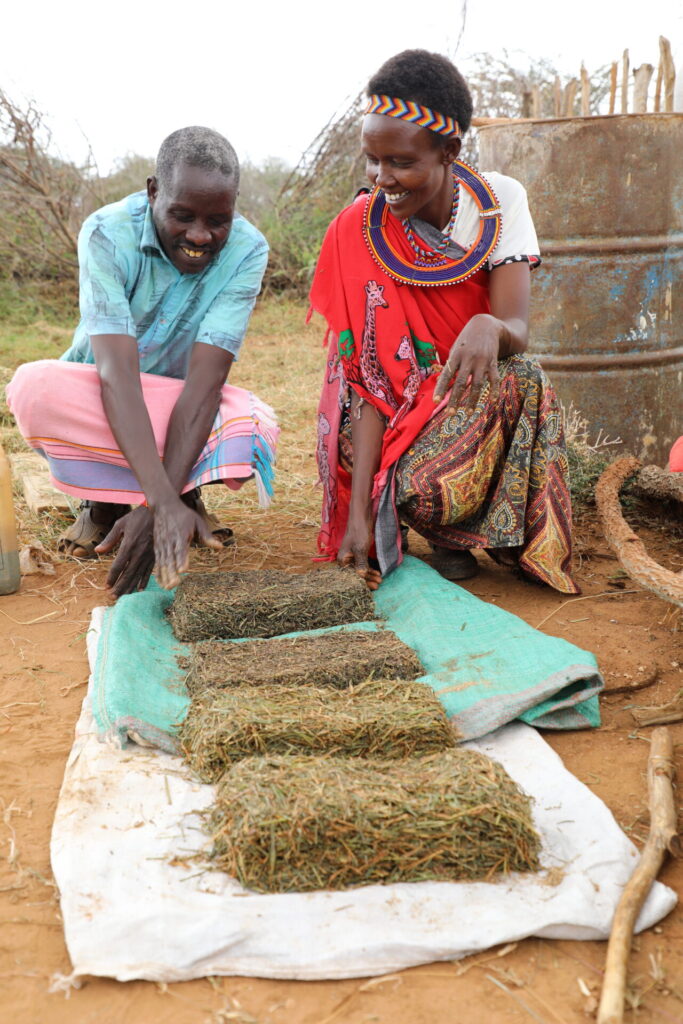Ufugaji Bora Mashinani
Ufugaji Bora Mashinani (UBM) is a practical farmer field school that equips herders and women in villages with skills that enhance livestock productivity and market value.
UBM, implemented by the Livestock Department and funded by the United States Agency for International Development’s (USAID) Local Works Program, provides practical skill training to select pastoralist groups in 10 NRT member community conservancies, increasing herders’ livestock production capacity.
Ufugaji Bora Mashinani was recommended and informed by the findings of a baseline survey conducted in August 2021, which revealed that herders’ lack of practical skills was inhibiting profitable livestock production.
UBM collaborates with county government technical subject matter specialists in its operations and delivers impact through:
Programme design: the UBM curriculum consists of six modules whose content and
schedule are designed to reinforce lessons through practical experience, foster collaboration and partnership, and positively change behaviours.
Livestock value chain improvement: UBM establishes livestock improvement and
marketing groups (livestock marketing agents) in each participating community conservancy. The groups receive breeding, animal feeds, and supplementary feeding, livestock marketing, climate adaptation and rangeland governance training and technology, enabling them to access market information in real time and work toward selling as a cooperative, increasing their competitive edge.
Improved animal health and value: UBM trains participants in modern animal husbandry and links them to better agricultural supplies that are relatively more affordable.
The Programme also supports trained individuals and registered groups in mobilising
local herders and pooling resources for livestock vaccination. These groups actively advocate for vaccination and other animal health services. UBM also trains herders in supplemental feeding.
Improved rangelands: UBM training leverages the best of modern and traditional grazing practices, strengthens local rangeland governance, and links livestock value chain improvement to rangeland restoration.

293 herders involved in Ufugaji Bora Mashinani trainings and graduated
4 modular training curriculum developed and delivered successfully
30 Livestock Marketing Agents (LMAs) recruited, with 50% being women.
KES 32.1 million income generated through 7 livestock value chains
“As a Maasai, I never understood the value of chickens in our homesteads. Now, if anyone tries to dissuade me, I’d consider them my adversary. These birds have revolutionized my family’s nutrition. They’ve lightened the load of school fees for my husband and me.”
Mary Leleruk, Ufugaji Bora Mashinani beneficiary from Naibunga Lower Conservancy.
